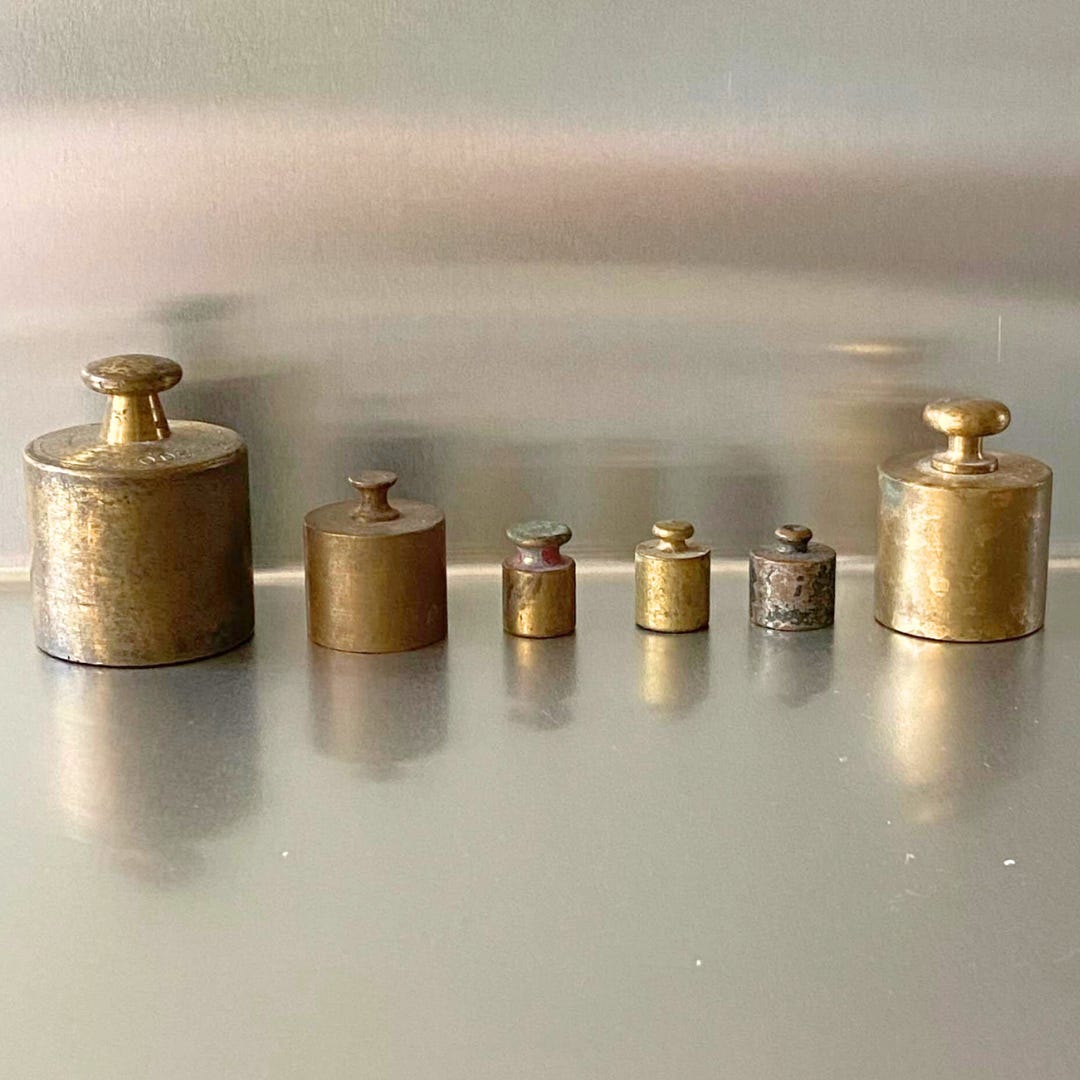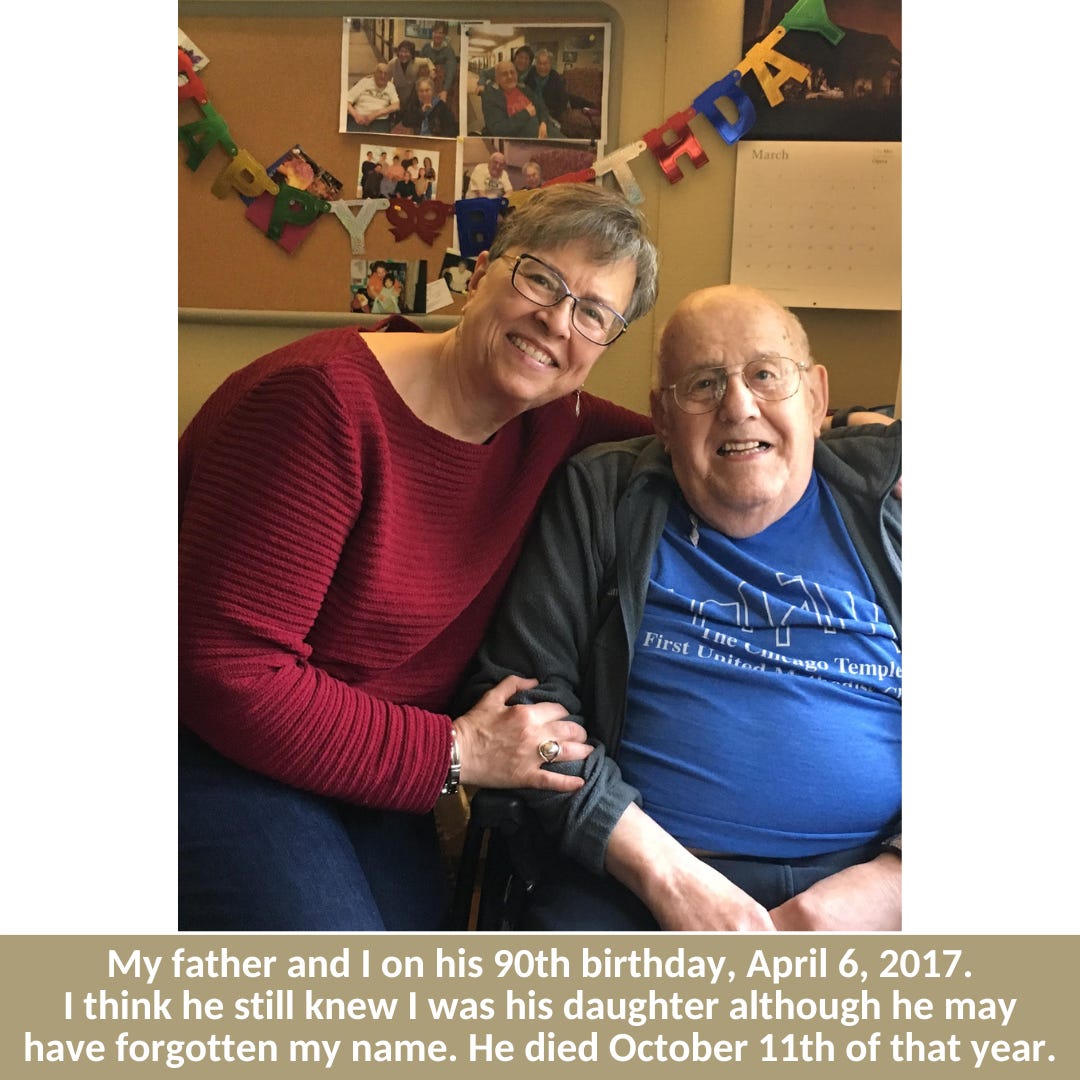DAD'S WEIGHTS
"He was a mechanic who specialized in the repair of industrial scales."
When my friends ask what kind of work my father did, I say, “You know those signs on the highway that say Truck Scales Ahead? He fixed those.” He was a mechanic who specialized in the repair of industrial scales. These six brass weights, which now sit on my fireplace mantel, were among those he used to calibrate and balance scales that took the measure not just of semis, but of car parts, paint cans, hot dogs, Jell-O, pills. You name it, he could fix the scale that weighed it.
We lived near Chicago, an industrial giant of a city. Starting in the 1960s, long before scales went digital, Dad worked in all sorts of factories. Pharmaceutical companies, Frito-Lay, Oscar Mayer. My favorite was General Mills because he often brought home bags of Bugles fresh off the conveyor belt and still warm. But there was also Darling’s Rendering Plant, a factory that turned animal waste into oils and fertilizer. Once a month Dad drove his big red pickup there. I could picture him descending the ladder to tinker with dials and gauges, the truck pit awash with blood and guts and rat droppings.
When my brother, Paul, was a teenager, he worked with Dad over the summer. Paul never tired of describing the smell at Darling’s, but Dad never talked about it. He just came home, same as every day, and cleaned up. (Though no matter how hard he scrubbed, his hands were stained from his work, and he could never loosen the grease from under his fingernails.)
The eldest girl, I was usually cooking dinner as Dad drove up our driveway, gravel popping under his tires. He’d come in the back door, set his lunchbox on the kitchen counter and say, “Hello, Daughter. That smells good. What’s for dinner?” before heading for the shower. I’d roll my eyes at the way he claimed me as his, something I valued little as a teenager.
Dad was born in 1927. He was two years old when the stock market crashed. A year later, his father died. Unable to care for her children, his mother put my father and his siblings in an orphanage. I don’t believe Dad ever truly recovered from that early abandonment. For the rest of his life, he struggled to express emotions. But what he couldn’t put into words, he expressed with the labor of his calloused, hardworking hands. Having lost his original family, he built his own, marrying my mother in 1954, having us four kids and making a life for the six of us.
In his eighties, my father developed dementia and suffered a stroke that left him unable to walk. Visiting him in the nursing home, I watched him sitting in his wheelchair, shaky and unsure, this man who had driven all over the Midwest in his big red truck, who had hefted toolboxes and wielded tools, who could balance a scale one brass weight at a time, who’d done work that was at times unpleasant but never complained.
Only after he died did I care about the weights. The six I kept became symbols of the family my father created from the life he was given. I imagine the largest one as Dad, the man I had to learn to appreciate. If you ever want to take the measure of a good man, all you have to do is look at that solid, sturdy weight.
—Lisa Rizzo
Lisa Rizzo is the author of Always a Blue House (Saddle Road Press) and In the Poem an Ocean (Big Table Publishing). A poet who has turned to nonfiction, she’s working on a memoir about her relationship with her father.




Lovely piece!
This is so lovely, Lisa ❤️